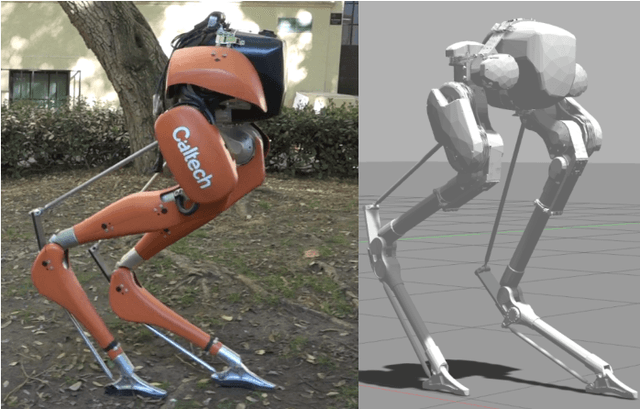Control Lyapunov Functions for Compliant Hybrid Zero Dynamic Walking
Paper and Code
Jul 09, 2021



The ability to realize nonlinear controllers with formal guarantees on dynamic robotic systems has the potential to enable more complex robotic behaviors -- yet, realizing these controllers is often practically challenging. To address this challenge, this paper presents the end-to-end realization of dynamic bipedal locomotion on an underactuated bipedal robot via hybrid zero dynamics and control Lyapunov functions. A compliant model of Cassie is represented as a hybrid system to set the stage for a trajectory optimization framework. With the goal of achieving a variety of walking speeds in all directions, a library of compliant walking motions is compiled and then parameterized for efficient use within real-time controllers. Control Lyapunov functions, which have strong theoretic guarantees, are synthesized to leverage the gait library and coupled with inverse dynamics to obtain optimization-based controllers framed as quadratic programs. It is proven that this controller provably achieves stable locomotion; this is coupled with a theoretic analysis demonstrating useful properties of the controller for tuning and implementation. The proposed theoretic framework is practically demonstrated on the Cassie robot, wherein 3D walking is achieved through the use of optimization-based torque control. The experiments highlight robotic walking at different speeds and terrains, illustrating the end-to-end realization of theoretically justified nonlinear controllers on dynamic underactuated robotic systems.
 Add to Chrome
Add to Chrome Add to Firefox
Add to Firefox Add to Edge
Add to Edge